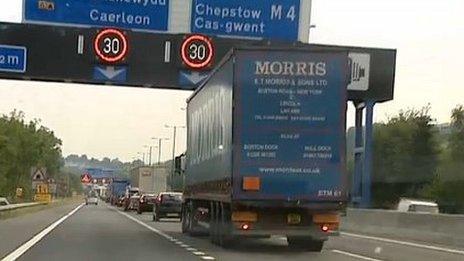M4 relief road judicial review rejected
- Published
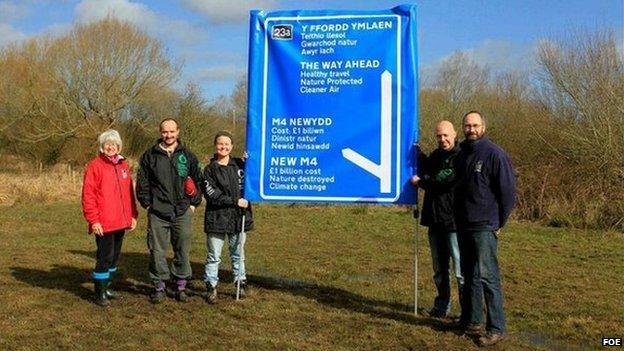
Friends of the Earth Cymru is worried about the effect of building the road on local wildlife
A judicial review of the decision to press ahead with the M4 relief road has been rejected in full.
Friends of the Earth Cymru had wanted a judge to examine how ministers reached their decision on the £1bn project.
The group, which is worried nature reserves will be damaged, said it was "disappointed" and would continue making the case against the road.
The Welsh government has insisted the decision had been "carefully considered".
Three firms have already been awarded the contract to start work on the project around Newport.
Friends of the Earth had raised three grounds for concern:
That the decision making process was unlawful
That the minister failed to take reasonable steps to "further" the conservation of plants and animals in the area
That the plan failed to take account of the Welsh government's own policies on carbon emissions
Sitting in the High Court, Mr Justice Hickinbottom rejected the review.
Gareth Clubb, director of Friends of the Earth Cymru, said: "Naturally we're disappointed by the conclusions of this judicial review. But the case against the M4 gets stronger by the day.
"Just yesterday a report was published by the renowned Tyndall Centre for Climate Change Research that said 'it is difficult to envisage how the M4 relief road can be justified."
A Welsh government spokeswoman said: "We welcome the judge's ruling. We believe this is the best solution to transport issues around Newport and that it is vitally important to the economic prosperity of Wales."

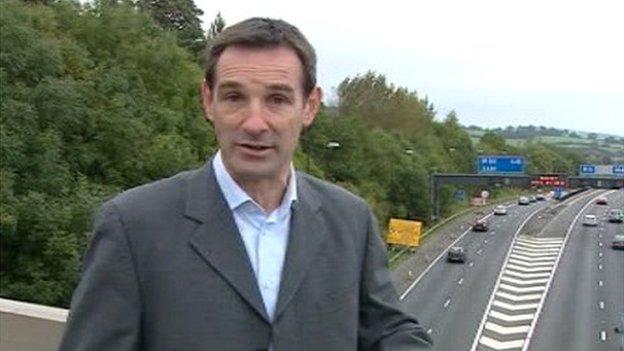
Analysis by BBC Wales environment correspondent Iolo ap Dafydd
This is a significant decision which now may well lead to the new relief road being built. The fact that the Welsh government on Wednesday announced three contracts for preliminary works underlines the confidence of ministers and civil servants.
Friends of the Earth Cymru argued that conservation sites would be damaged and reasonable alternatives hadn't been fully explored by the Welsh government.
But the judge said their case had "fallen very far short" and it was up to the government to decide on the merits of where to build the road, or if it would sacrifice part of the Gwent Levels.
Environment groups question building a new stretch of the M4, with a projected increase of traffic and greenhouse gas emissions.
They argue this is at odds with the Welsh government's repeated climate change commitment - which is to reduce emissions by 3% per year and 40% by 2020.
Ministers argue a new M4 will reduce congestion and emissions and make Wales "more resilient to the effects of climate change".
Last week, it passed legislation on sustainable development - the Well-being of Future Generations Bill. That requires all public bodies to embed climate change into their decision-making.
So how does the M4 relief road fit in with that thinking? The answer, I guess, would be about taking a broader view.

- Published25 March 2015
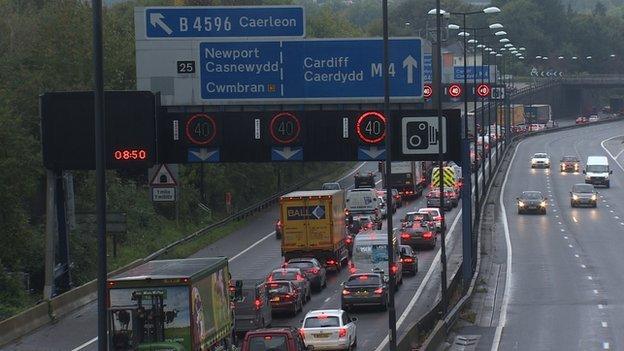
- Published10 March 2015
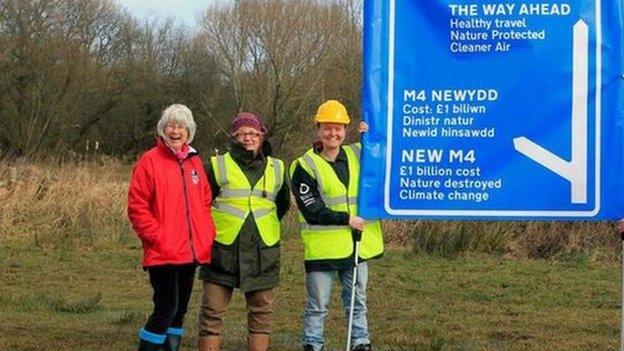
- Published17 November 2014
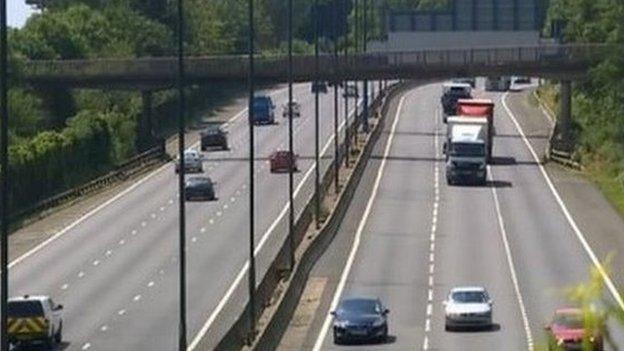
- Published1 August 2014
